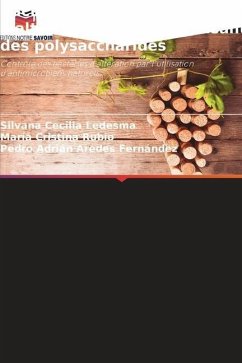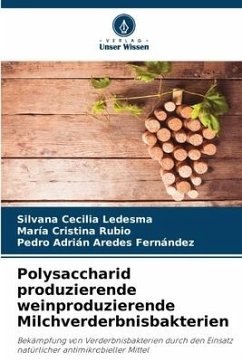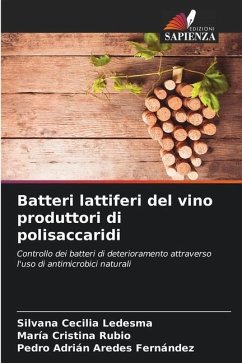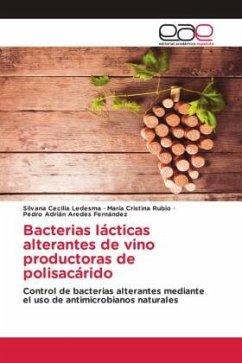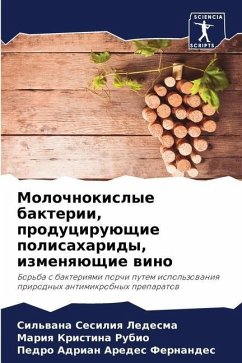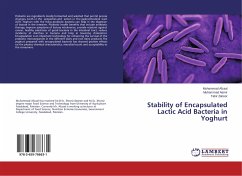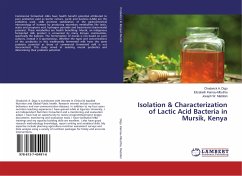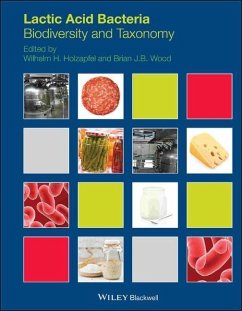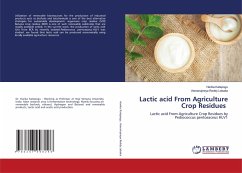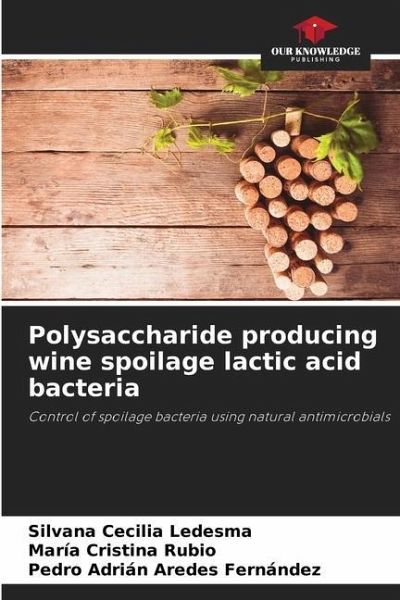
Polysaccharide producing wine spoilage lactic acid bacteria
Control of spoilage bacteria using natural antimicrobials
Versandkostenfrei!
Versandfertig in 6-10 Tagen
40,99 €
inkl. MwSt.

PAYBACK Punkte
20 °P sammeln!
During the winemaking process, alterations can occur due to the uncontrolled development of lactic bacteria of the Pediococcus genus, which due to their ability to synthesize exopolysaccharide (EPS), increase the viscosity of the wine, reducing its quality. In the industry, sulfur dioxide (SO2) is normally used as an antimicrobial agent against altering lactic acid bacteria, a chemical agent that can cause allergic reactions and intolerance in sensitive people. The use of phenolic compounds for microbial control could represent a natural and effective alternative to eliminate or replace sulfit...
During the winemaking process, alterations can occur due to the uncontrolled development of lactic bacteria of the Pediococcus genus, which due to their ability to synthesize exopolysaccharide (EPS), increase the viscosity of the wine, reducing its quality. In the industry, sulfur dioxide (SO2) is normally used as an antimicrobial agent against altering lactic acid bacteria, a chemical agent that can cause allergic reactions and intolerance in sensitive people. The use of phenolic compounds for microbial control could represent a natural and effective alternative to eliminate or replace sulfite in the winemaking process. The objective of this work was to investigate the effect of the low molecular weight phenolic compounds fraction of wine and pure commercial phenolic acids and/or combinations thereof on the survival and EPS production of Pediococcus pentosaceus E2p, isolated from Cafayate wines.



